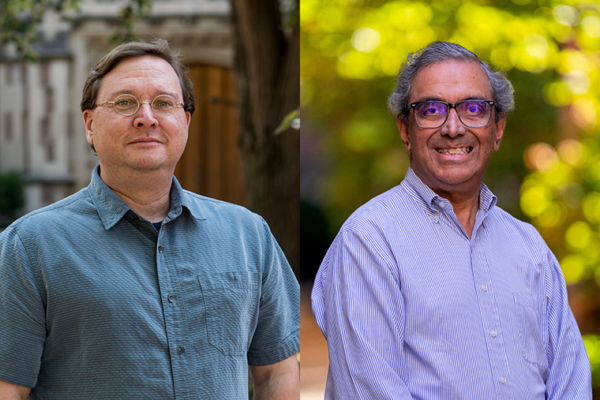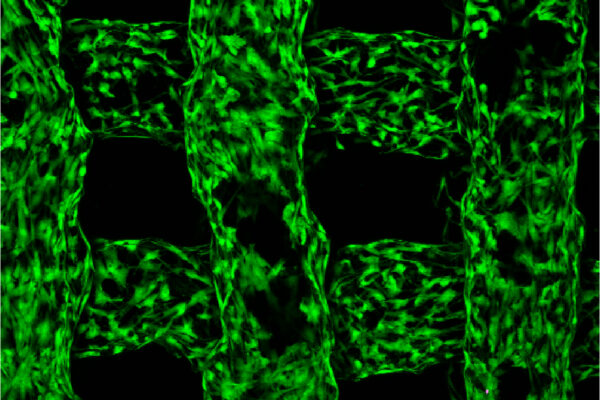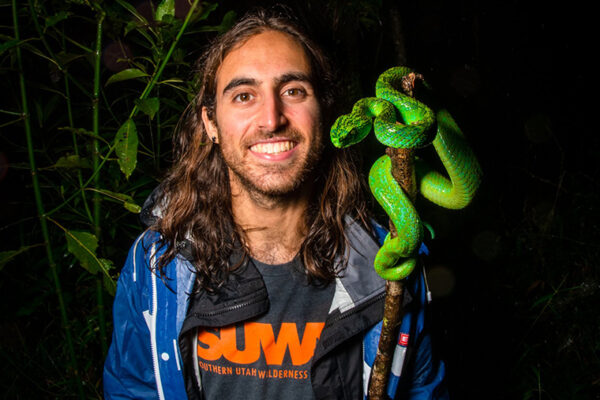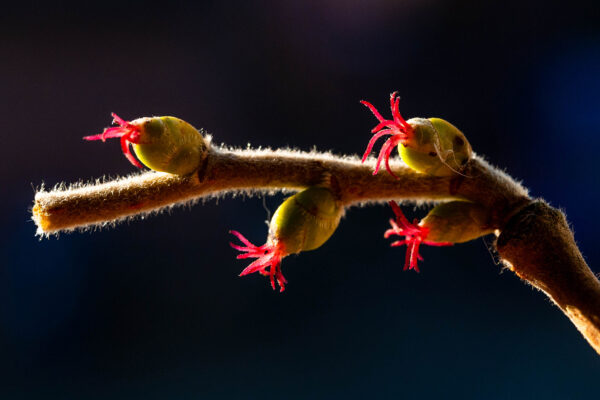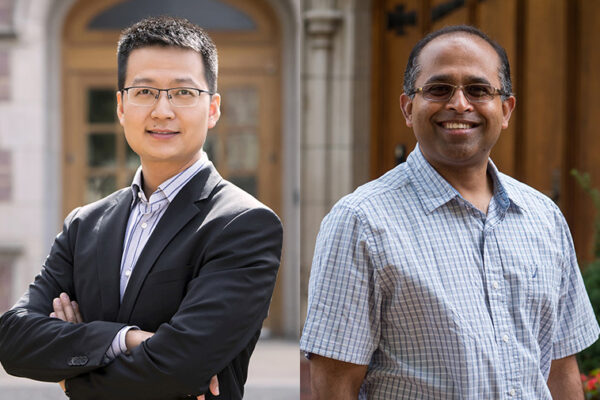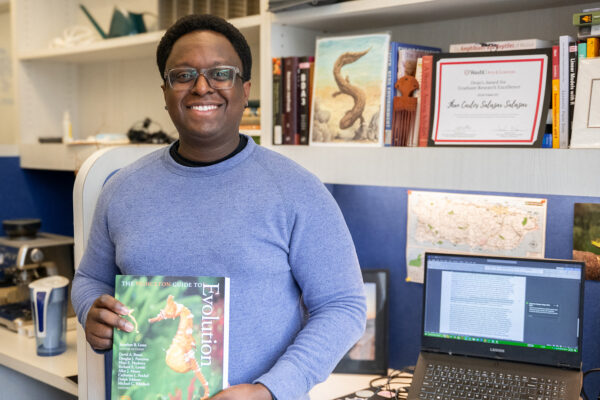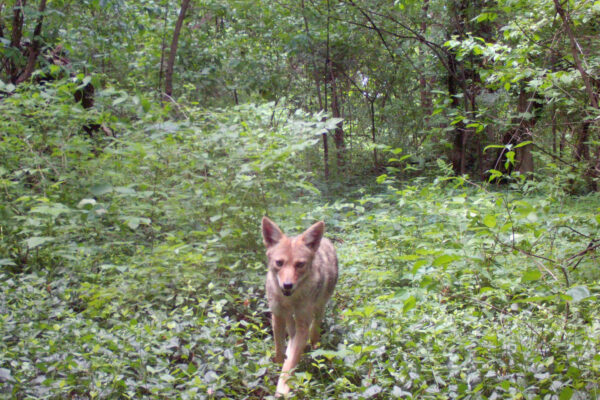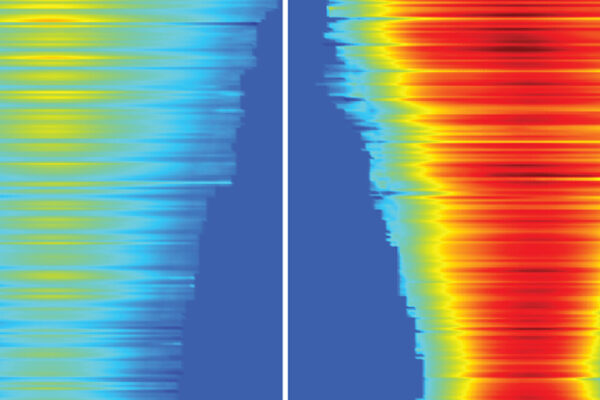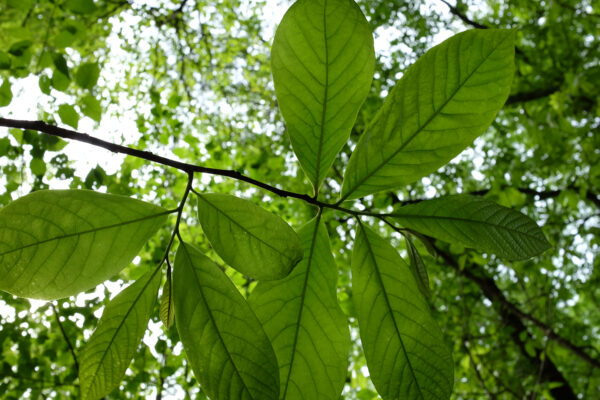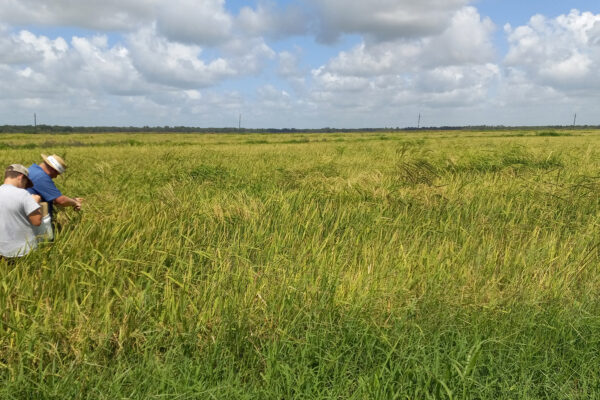Jez, Pakrasi named fellows of biochemistry society
The American Society for Biochemistry and Molecular Biology named Joseph Jez and Himadri Pakrasi in Arts & Sciences as fellows in recognition of their research, education, mentorship and service to the scientific community.
For success in bioelectronics, build with nature-inspired design
Researchers at WashU have developed bioelectronic scaffolds in a unique way that creates new tissues.
Helping herps in Central America
Tasman Ezra, a graduate student in biology in Arts & Sciences at Washington University in St. Louis, founded a conservation organization dedicated to conserving reptiles, amphibians and their habitats in Honduras.
Lady in red
Research from biologist Susanne Renner in Arts & Sciences reveals the function of red stigmas in wind-pollinated flowers.
Academy honors two university faculty
Two WashU faculty members will receive Outstanding St. Louis Scientist awards: battery engineer Peng Bai, at the McKelvey School of Engineering, and biologist Ram Dixit, in Arts & Sciences.
Jhan Carlos Salazar
WashU biology graduate student Jhan Carlos Salazar, in Arts & Sciences, has made high-impact — and high-altitude — discoveries about the adaptations of lizards in his home country of Colombia. He works with Jonathan Losos, the William H. Danforth Distinguished University Professor.
Coyote genes may show urban evolution at work
A new study by Elizabeth Carlen, a postdoctoral fellow with the Living Earth Collaborative at WashU, outlines the ways by which city life may be shaping the evolution of urban coyotes, the highly adaptable carnivores spotted in alleyways from Berkeley, Calif., to the Bronx, in New York.
May the force not be with you
Researchers at the McKelvey School of Engineering have turned an age-old assumption about cell force on its head. Their work, published in PLOS Computational Biology, has implications for how cancer spreads and wounds heal.
Nothin’ but pawpaws in the pawpaw patch
Pawpaws are the state fruit tree of Missouri. But the trees tend to choke out woody bushes and flowering plants nearby, exerting a haphazard kind of pressure on would-be neighbors, according to research from WashU.
Across southeastern US, weedy rice steals herbicide resistance from crop rice
Biologists in Arts & Sciences found that 57% of their samples of weedy rice collected in Missouri, Arkansas and Louisiana were resistant to herbicides.
Older Stories
